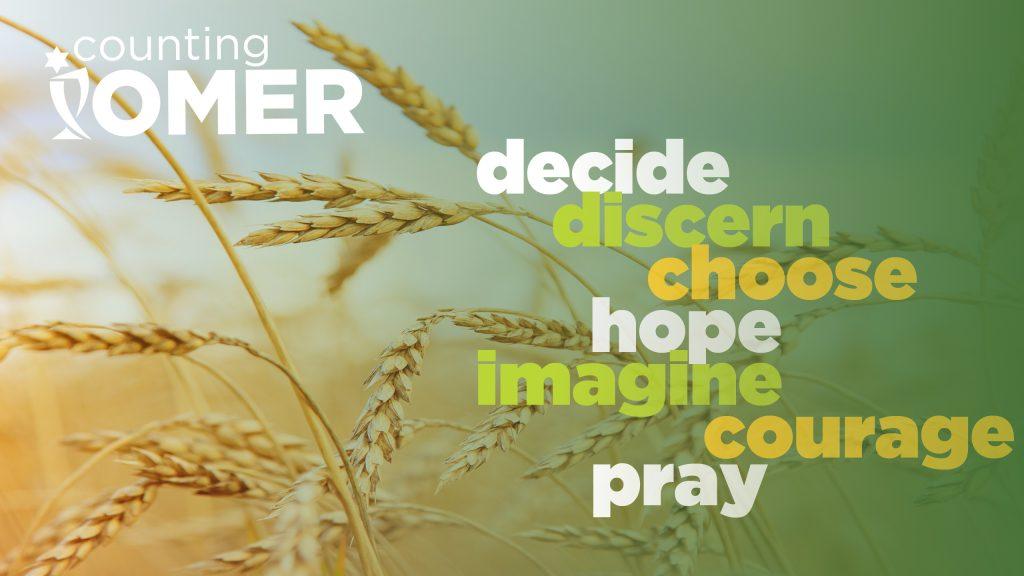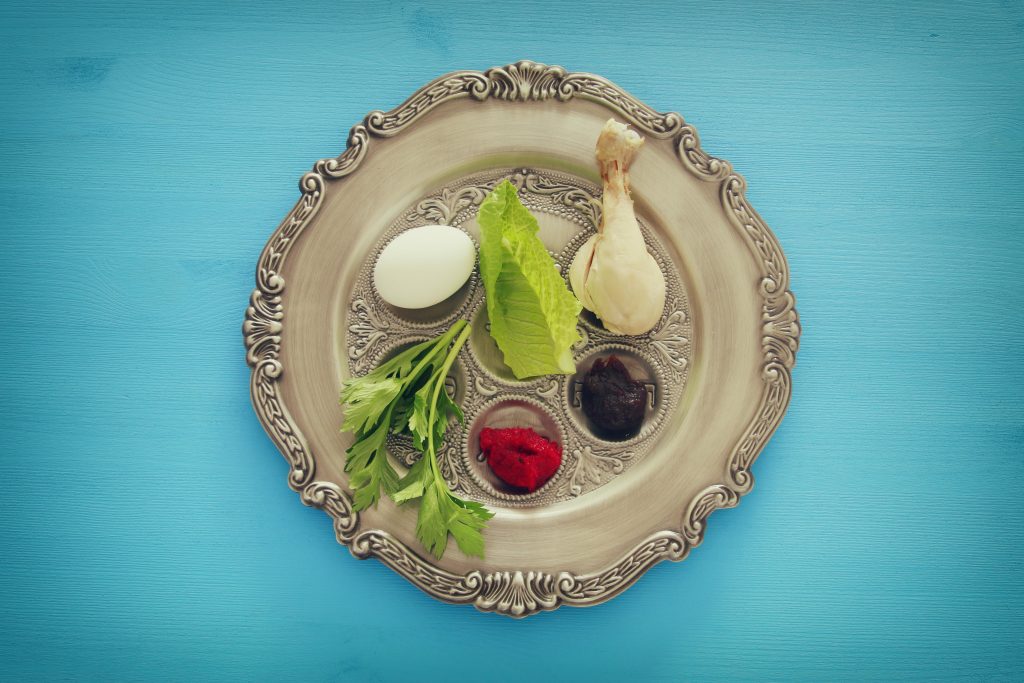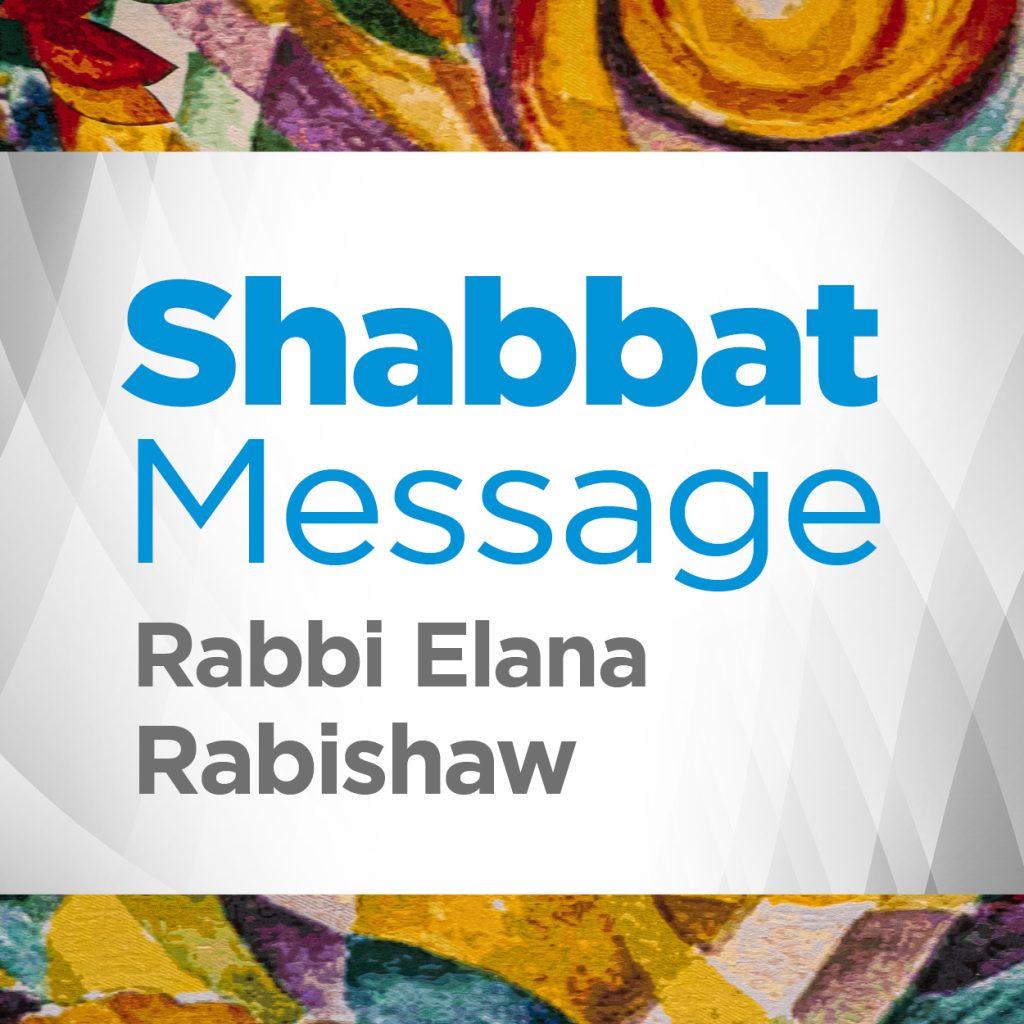The Omer is the 49-day period between the celebration of Passover and the Festival of Shavuot. Beginning with Passover’s celebration of our liberation from Egypt, it became the custom to count the 49 days of the grain harvest leading to Shavuot, marking each step in our journey to Mount Sinai to receive the gift of Torah and revelation.
Temple Beth El will mark the counting of the Omer this year through the wisdom of Rabbi Karyn Kedar’s book Omer: A Counting. Each of the seven weeks of the Omer will focus on a theme related to growing our spiritual awareness and liberating ourselves from all that keeps us from feeling a sense of spiritual wholeness.
This week’s theme is PRAY.

Sometimes our power lies within our ability to let go of our delusions of control. By offering a prayer, we confess the boundaries of power to know and to understand everything. Through prayer we find the strength to decide, to change. Within our prayers we sense the inner stirring of discernment, and we find the guidance to choose well. Within our prayers we find the light of hope and the imagination to dream. Within our prayers we find the courage to sustain our path when doubt casts a shadow. Through prayer we find faith. When we pray, we partner with some invisible force that leads us toward our destiny, to the freedoms we so desire. Prayer is a conversation with the invisible. It expands the reality in which we live and bids us to imagine holiness, eternity, love, goodness, and beauty.
בָּרוּךְ אַתָּה יְיָ אֱלֹהֵֽינוּ מֶֽלֶךְ הָעוֹלָם, אֲשֶׁר קִדְּשָֽׁנוּ בְּמִצְוֹתָיו, וְצִוָּֽנוּ עַל סְפִירַת הָעֹֽמֶר
Baruch Ata Adonai Eloheinu Melech HaOlam Asher Kidshanu B’Mitzvotav V’Tzivanu Al Sefirat HaOmer.
Blessed are You, Adonai our God, Ruler of the Universe, who sanctifies us with mitzvot, and commands us concerning the counting of the Omer.
Someone once said that feeling gratitude and not expressing it is like wrapping a present and not giving it.
Rabbi Sally J. Priesand, The Sacred Calling
Questions to Consider:
- What is gained when we take the thoughts in our hearts and offer them as prayer?
In what ways are liturgical prayers offerings of our own imagination and dreams?
Moses and Aaron said to Pharoah, Thus says the Eternal, the God of Israel: Let My people go that they may celebrate a festival for Me in the wilderness. (Exodus 5:1)
Questions to Consider:
- Where can your prayers take you?
- How do prayers propel you?
Learn to be quiet.
You need not do anything.
Remain sitting at your table and listen.
You need not even wait,
just learn to be quiet, still and solitary.
And the world will freely offer itself to you unmasked.
It has no choice,
it will roll in ecstasy at your feet.
Franz Kafka
Questions to Consider:
- In what ways do you pray in silence? In what ways do you need volume to pray?
- How do the two work together?
From the most narrow place, I called to God, who answered me, and brought me back to the expanse (Psalm 118:5)
Question to Consider:
How is prayer different for you when you pray in happy times, compared to darker times?
Speaking and writing God’s name carries weight, the weight of prayer, the weight of invoking holiness, the weight of summoning the Divine. It is not a casual business.
Jewish prayer addresses God in three ways: using God’s personal, intimate names, such as Adonai, and Eloheinu; with established titles for God used in Tanach (the Hebrew Bible), such as Shomeir Yisrael (Guardian of Israel) and Tzur Yisrael (Rock of Israel); and with more general descriptions of God, such as tzuri v’go’ali (my Rock and Redeemer).
Alden Solovy, Jewish Prayers of Hope and Healing
Questions to Consider:
- Do you have different ways of talking to the Holy One?
- What differentiates your prayers?
Bird tracks in the sand on the seashore
like the handwriting of someone who jotted down
words, names, numbers and places, so he would remember.
Bird tracks in the sand at night
are still there in the daytime, though I’ve never seen
the bird that left them. That’s the way it is
with God.
“Gods Change, Prayers Are Here to Stay”
in Yehuda Amichai, Open Closes Open: Poems,
Translated by Chana Bloch and Chana Kronfeld
Questions to Consider:
- What role does faith play in your prayers?
- In what ways do you feel your prayers answered?
I prayed for wonders instead of happiness, and You gave them to me.
Rabbi Abraham Joshua Heschel, The Ineffable Name of God: Man; Poems
Questions to Consider:
- What have you gained during this 49-day journey of personal exploration and growth?
- Who has helped you?
- What has the role of prayer been along the way?









